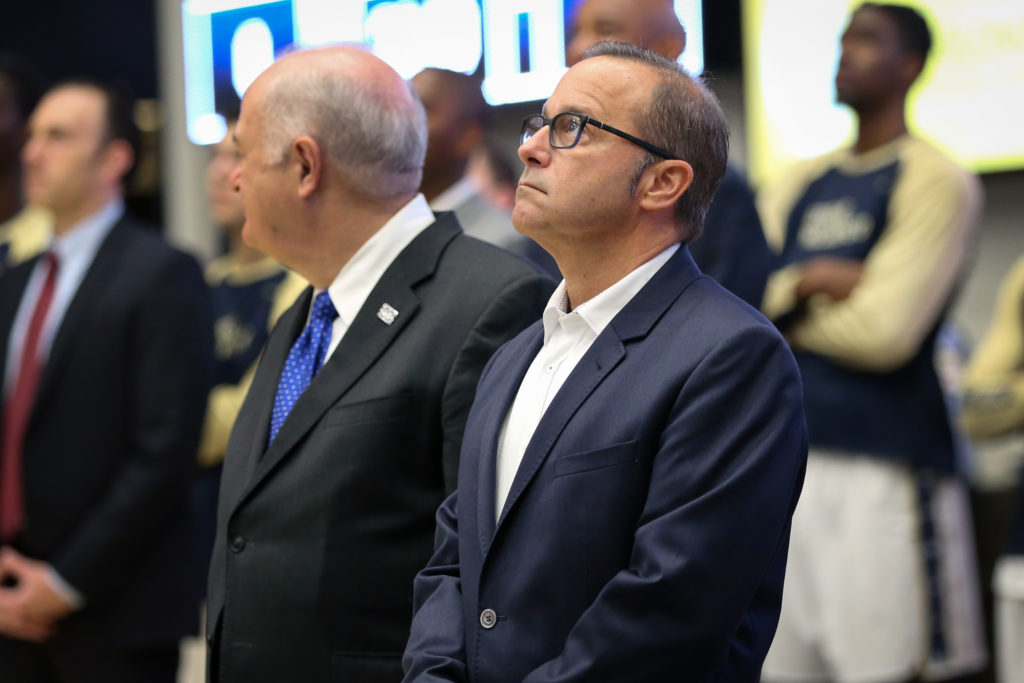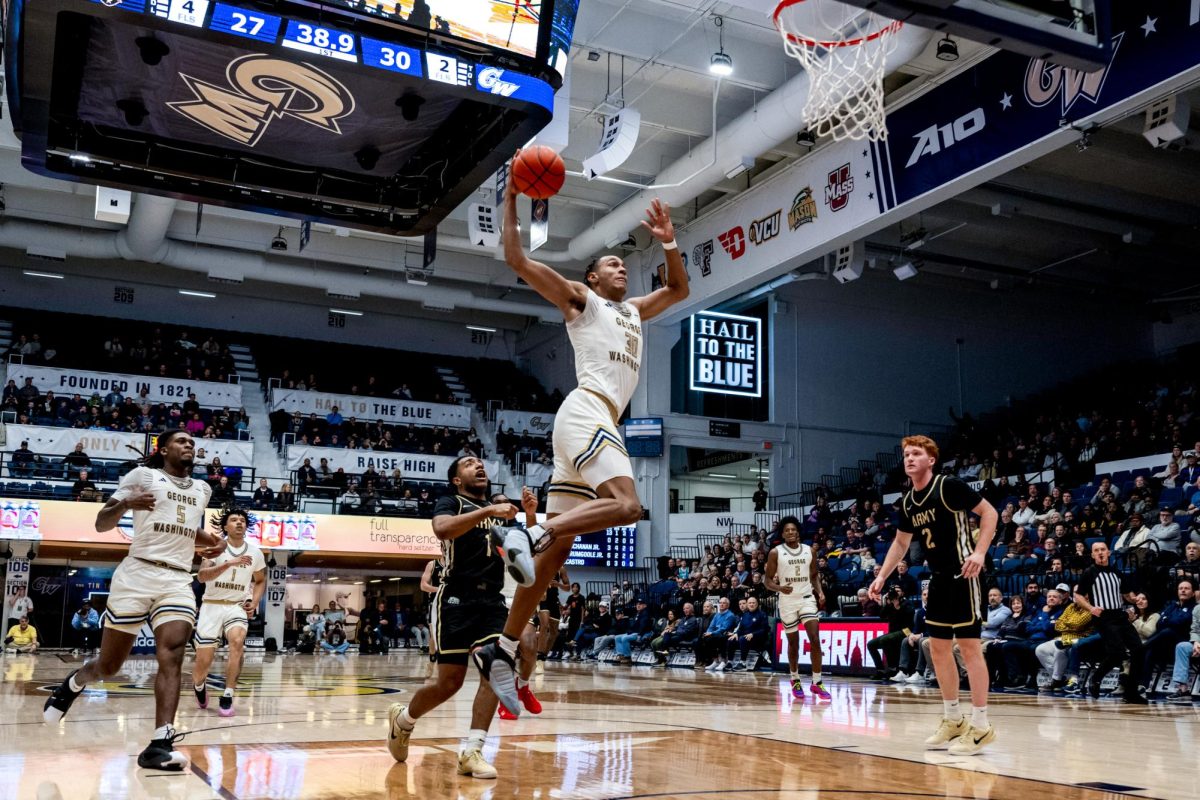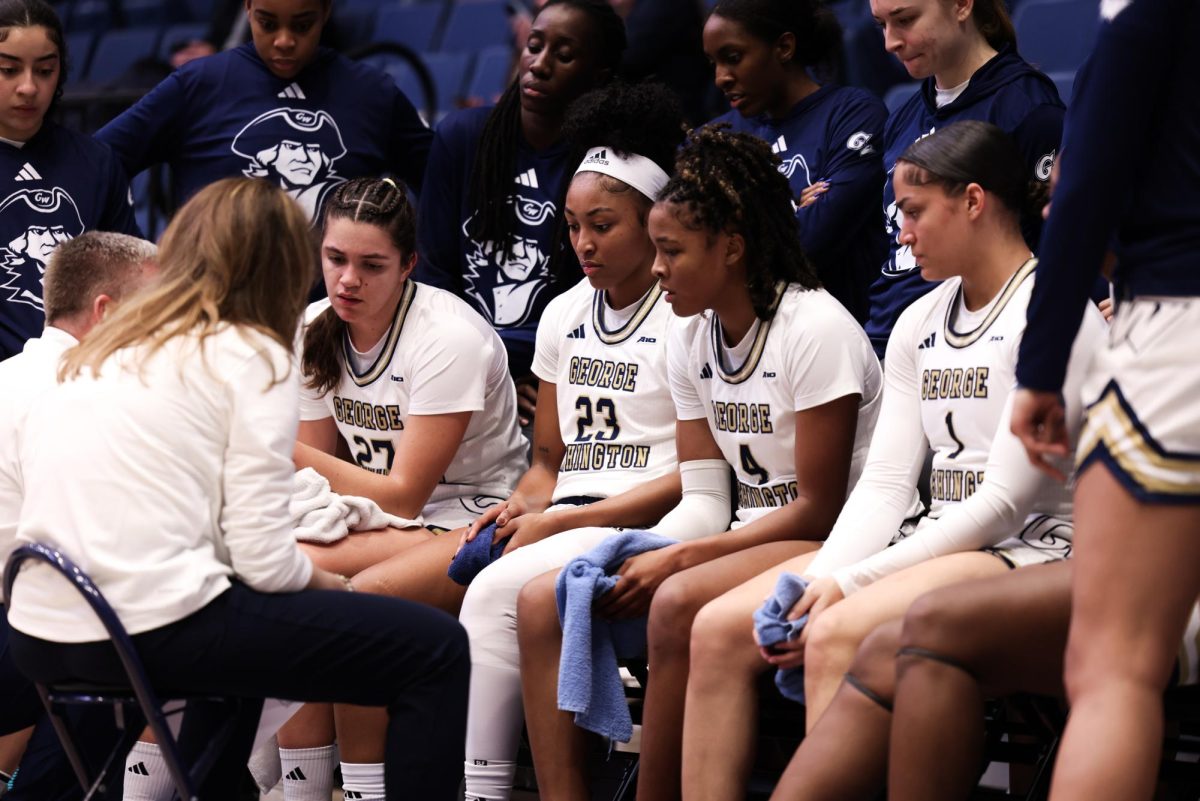Former Athletic Director Patrick Nero received $1.3 million in severance payments during the 2019 fiscal year, according to a financial disclosure.
Nero stepped down from his post in December of 2017 and faced allegations of misconduct less than a year later for acting inappropriately with student-athletes, athletic department staff and recent graduates. Employment law experts said receiving severance after resigning is not unusual, but details about how long he could receive payments depend on his employment contract and agreement with GW, which is not made public.
“Analytically, it appears he may have resigned for good reason, and that’s analogous for a termination without just cause,” said Steven Sholk, a lawyer and director in the corporate department of Gibbons P.C. “That would trigger the severance payments.”
Sholk said resigning for good reason typically happens when an employer does not “live up to the obligations” of their contract. He said a good reason for resignation is similar to termination without cause, which allows employment to be cut because the employer is unhappy with their employee’s efforts.
University spokeswoman Crystal Nosal declined to say how the University determined Nero’s severance payments and how much money the University agreed to pay Nero in severance.
Nosal confirmed that Nero is no longer employed at the University but declined to say whether he was asked to resign.
Nero did not return multiple requests for comment.
GW’s Form 990, an annual disclosure required for organizations claiming tax-exemption status, also indicated that the University paid Nero more than $200,000 in base compensation during FY19.
At the time of Nero’s resignation, athletic department spokespeople said Nero would make himself available in the spring to ease the athletic department’s transition to Tanya Vogel, the current athletic director.
Sholk, a lawyer and director at Gibbons P.C., said the base compensation may be payment for Nero’s consulting, a common stipulation in many severance agreements.
He added that the University may have privately let Nero go, treating his severance payments as a termination without cause, but officials publicly announced his departure as a resignation. But Sholk added that nothing can be determined definitively without examining his contract or severance agreement.
“We really don’t know how it was treated until we see the severance agreement,” Sholk said. “So unless you see the severance agreement, you really don’t know the underlying reasoning why he got the severance payments.”
Rick Rossein, a law professor at City University of New York School of Law, said the base salary may be given as a result of Nero’s contract with the University. He added that Nero could be receiving payments one to five years after he resigned, depending on his contract and severance negotiations.
“There are all kinds of ways severance can be determined, but generally it’s set out pretty specifically in the employment agreement contract,” Rossein said.
Belle Long contributed reporting.





